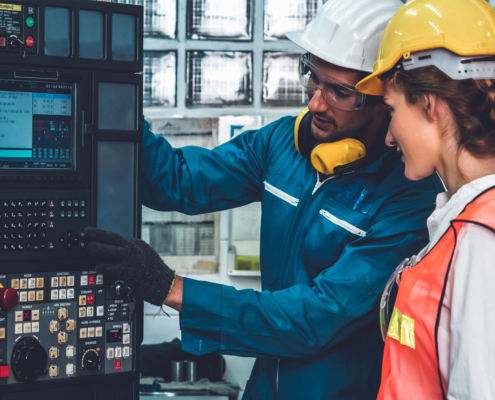 https://www.sbmech.com/wp-content/uploads/2024/09/Group-of-factory-job-workers-using-machine-equipment-in-manufacturing-workshop.jpg
1250
2000
Abstrakt Marketing
/wp-content/uploads/2023/10/cropped-Smith-Boughan_Logo-Formated-Lima-13-1030x269.jpg
Abstrakt Marketing2024-09-24 09:08:182024-10-25 12:06:51Understanding Control in Industrial Maintenance
https://www.sbmech.com/wp-content/uploads/2024/09/Group-of-factory-job-workers-using-machine-equipment-in-manufacturing-workshop.jpg
1250
2000
Abstrakt Marketing
/wp-content/uploads/2023/10/cropped-Smith-Boughan_Logo-Formated-Lima-13-1030x269.jpg
Abstrakt Marketing2024-09-24 09:08:182024-10-25 12:06:51Understanding Control in Industrial MaintenanceUnderstanding how often to service your plumbing system is crucial for avoiding costly breakdowns and ensuring efficient operations. But what factors should guide your commercial plumbing maintenance schedule? In this article, we look into the considerations that shape your plumbing’s upkeep needs—from the frequency of usage and the age of your infrastructure to the specific location challenges your property might face. We also highlight the critical components of a commercial system that demand regular attention, ensuring that each part functions at its best. And because one size doesn’t fit all, we address how to customize your maintenance plan.
Professional Insight: How Often Should You Service Your Commercial Plumbing?
Deciphering your commercial plumbing system’s unique requirements is crucial to ensuring its optimal performance and longevity. Your system’s maintenance frequency can vary based on several factors, including usage, the types of fixtures installed, the age of the system, and the quality of water running through your pipes. Understanding these variables helps tailor a maintenance schedule that suits your specific needs.
Expert Opinions: The Role of Professional Plumbers in Maintenance
Professional plumbers play a pivotal role in maintaining commercial plumbing systems. They have the expertise to identify potential issues before they escalate and can provide essential recommendations for regular maintenance. Engaging with professionals will ensure your plumbing system operates efficiently, limiting unexpected disruptions in your daily business operations.
Recommended Maintenance Frequency for Commercial Plumbing Systems
While each commercial plumbing system is unique, industry professionals generally recommend a comprehensive inspection and servicing at least once a year. More frequent checks every six months may be advisable for systems under heavy use, such as those in restaurants or hotels.
Why Residential and Commercial Plumbing Require Different Maintenance Approaches
Several factors drive the disparity between residential and commercial plumbing maintenance, influencing how service professionals approach system care.
- Industry Requirements: Commercial establishments must often comply with stricter regulations and codes, mandating thorough maintenance routines.
- Water Usage: A commercial building typically has a higher water usage rate than a residential home, requiring more robust plumbing systems and frequent checks.
- System Complexity: Commercial plumbing systems usually surpass residential systems, hosting multiple floors and extensive pipe networks that demand specialized attention.
Example Maintenance Schedules that Maintain Quality Service
Examining practical examples can offer valuable insight into effective commercial plumbing maintenance. Studies from various industries show that regular maintenance optimizes performance and significantly reduces the risk of costly repairs and downtimes. A biannual schedule for high-usage systems and annual checks for moderate to low-usage systems strike the right balance for most commercial operations.
- High-usage facilities like gyms or public restrooms may require quarterly evaluations due to the constant water flow and waste disposal.
- Hospitality sectors, including hotels and restaurants, benefit from biannual plumbing maintenance to prevent disruption to guests and diners.
- Office buildings with moderate use might find an annual checkup sufficient to ensure everything flows smoothly.
Take a deeper dive into the differences between residential and commercial plumbing needs and techniques.
Common Plumbing Issues in Commercial Buildings
Understanding common problems is crucial to maintaining a functional building. Many plumbing issues can escalate into major disruptions and costly repairs if left undetected or ignored. Here’s what you need to know about properties’ frequent challenges and how routine commercial plumbing maintenance can offer a solution.
Identifying Frequent Problems
Leaks, clogs, and water pressure issues are among the most prevalent concerns in commercial plumbing systems. Each presents unique challenges:
- Leaks: Leaks can occur in toilets, faucets, or hidden within the building’s infrastructure. Leaks are wasteful and can lead to significant water damage and mold if not promptly addressed.
- Clogs: Commercial kitchens, restrooms, and sewage lines are especially prone to clogs and problematic toilets, which can disrupt normal operations and pose health risks if not resolved.
- Water Pressure Issues: Too low or too high water pressure can affect the efficiency of plumbing fixtures and appliances, indicating more severe plumbing system concerns.
Crafting Your Commercial Plumbing Maintenance Plan
Ensuring your commercial plumbing system’s longevity and proper functioning is pivotal to any establishment’s operations. Creating a personalized plumbing maintenance schedule is a critical practice.
How to Create a Plumbing Maintenance Schedule Tailored for Your Building
Every commercial building has its specific plumbing requirements. To craft a tailored maintenance schedule, start by assessing the usage patterns, existing plumbing infrastructure, and the history of plumbing problems in your building. Consider critical areas that require frequent monitoring and schedule regular inspections for these points. It’s also important to consider the varying water pressure demands and the age and materials of your pipes when setting up your plan.
Integrating Emergency Preparedness into Your Maintenance Plans
A strong maintenance plan also includes strategies for emergency preparedness. Emergency scenarios can range from minor leaks to significant pipe bursts. Being prepared implies having a clear set of quick detection and response procedures. This involves training staff on the signs of plumbing issues, the locations of shut-off valves, and the steps to minimize damage. Additionally, ensure you have a list of emergency contacts for your plumbing service providers readily available.
Cost Savings Through Preventive Plumbing Maintenance
The adage “an ounce of prevention is worth a pound of cure” especially applies to commercial plumbing maintenance. In a commercial setting, the stakes are high, as plumbing issues can disrupt daily operations and lead to significant financial losses. Therefore, investing in regular plumbing checks can provide substantial long-term economic benefits.
Long-term Financial Benefits: Preventing Costly Emergency Repairs
Preventative plumbing maintenance is critical in avoiding unexpected and often costly emergencies. By scheduling routine inspections, potential issues can be identified and resolved before turning into major problems. This proactive approach extends the lifespan of plumbing infrastructure and eliminates the need for emergency service calls, which often come with a hefty premium.
For property owners and managers, the frequency of plumbing maintenance may raise concerns about the costs involved. However, regular maintenance checks can result in significant savings by:
- Lowering the chances of disruptive plumbing breakdowns that can halt commercial operations and result in lost revenue.
- Mitigating risks of water damage to property can be extensive and expensive to repair.
- Improving the efficiency of plumbing fixtures and appliances helps reduce monthly water and energy bills.
- Ensuring compliance with local building codes and avoiding potential fines or liability from plumbing failures.
Tips for Choosing the Right Commercial Plumbing Maintenance Provider for Your Facility
Finding a knowledgeable and reliable commercial plumbing maintenance provider is essential to ensure the longevity and functionality of your facility’s plumbing system. It’s important to do your due diligence when selecting the right service provider. Here are some tips to consider:
What to Look for in a Plumbing Company
- Experience and Reputation: Choose a company with extensive experience in commercial plumbing systems, known for their quality work and positive client testimonials.
- Licensed and Insured: Confirm that the company is licensed to operate in your area and carries insurance to protect your property from any possible damage during maintenance.
- Comprehensive Service Plan: The provider should offer a maintenance plan that covers all aspects of your plumbing system, tailored to your facility’s needs.
- Emergency Services: Ensure the company provides emergency repair services because plumbing issues often arise unexpectedly and can require immediate attention.
- Cost Transparency: Look for a plumbing maintenance provider who offers transparent, upfront pricing without hidden costs and provides a detailed contract.
- Commitment to Safety: A reputable company prioritizes the safety of its staff and your facility while performing its services.
- Relationship Building: Opt for a provider who values building a long-term relationship with your business and understands your facility’s history and infrastructure.
- Up-to-Date with Technology: A provider who stays current with the latest plumbing technologies and techniques can offer more efficient and effective maintenance solutions.
Craft an Effective Commercial Plumbing Maintenance Strategy With Smith-Boughan
For nearly a century, Smith-Boughan has helped clients throughout the Lima, Ohio area keep their systems operating at peak performance with proactive, personalized commercial plumbing maintenance. Contact us today if you want to minimize downtime, long-term costs, and hassles; we’re ready to work with you to develop a service plan.
Share This Post
More Like This
 https://www.sbmech.com/wp-content/uploads/2024/09/Group-of-factory-job-workers-using-machine-equipment-in-manufacturing-workshop.jpg
1250
2000
Abstrakt Marketing
/wp-content/uploads/2023/10/cropped-Smith-Boughan_Logo-Formated-Lima-13-1030x269.jpg
Abstrakt Marketing2024-09-24 09:08:182024-10-25 12:06:51Understanding Control in Industrial Maintenance
https://www.sbmech.com/wp-content/uploads/2024/09/Group-of-factory-job-workers-using-machine-equipment-in-manufacturing-workshop.jpg
1250
2000
Abstrakt Marketing
/wp-content/uploads/2023/10/cropped-Smith-Boughan_Logo-Formated-Lima-13-1030x269.jpg
Abstrakt Marketing2024-09-24 09:08:182024-10-25 12:06:51Understanding Control in Industrial Maintenance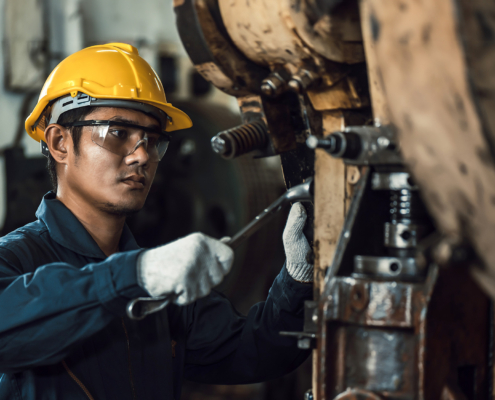
How to Develop a Quality Control Plan for Industrial Maintenance
Industrial Services (Quality Control), Maintenance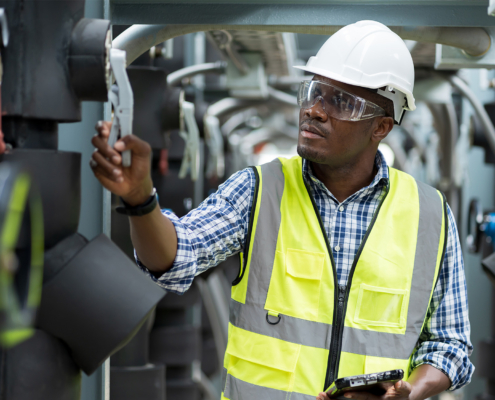
Understanding Industrial Maintenance Compliance Guidelines
Industrial Services (Maintenance), Maintenance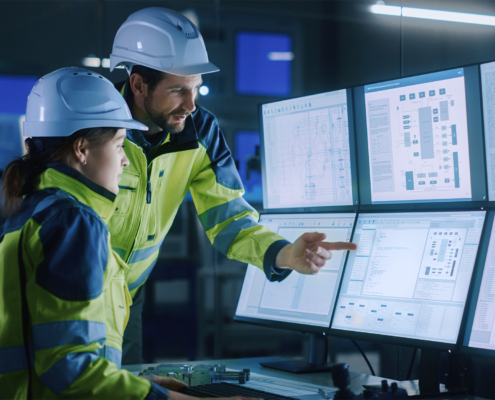
The Role of Technology in Industrial Maintenance Practice Innovations
Industrial Services (Maintenance), Maintenance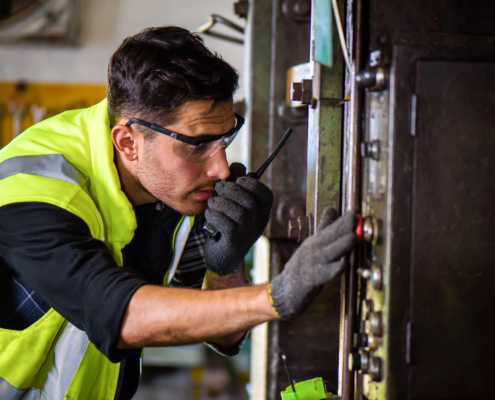
Factors to Consider When Choosing an Industrial Maintenance Provider
Industrial Services (Maintenance), Maintenance
Best Practices for Improving Industrial Maintenance
Industrial Services (Maintenance), Maintenance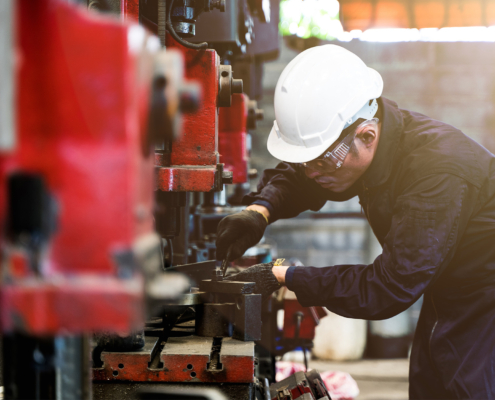
Exploring the Benefits of Routine Industrial Maintenance
Building Services (Maintenance Agreements), Maintenance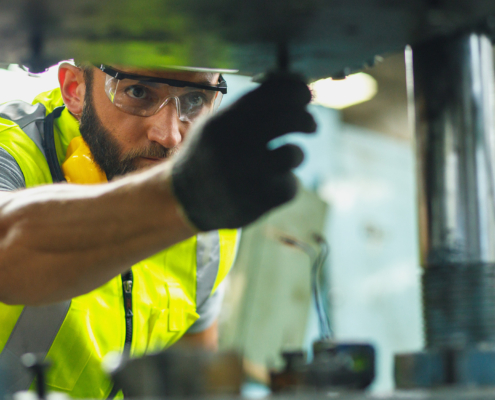
Your Guide to Industrial Maintenance
Building Services (Maintenance Agreements), Maintenance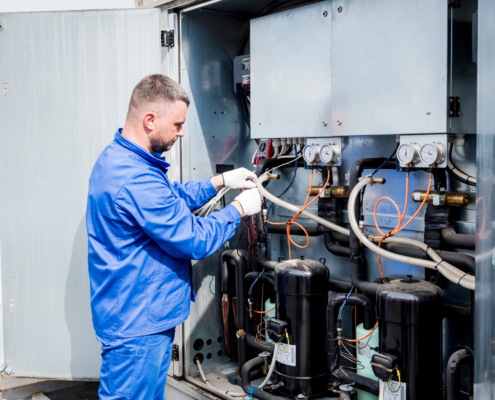
The Importance of a Commercial HVAC Maintenance Agreement
MaintenanceAbout Us
Smith-Boughan Mechanical has been servicing the Lima, Ohio, region with industry-leading mechanical design, fabrication, construction, and maintenance services since 1927.



